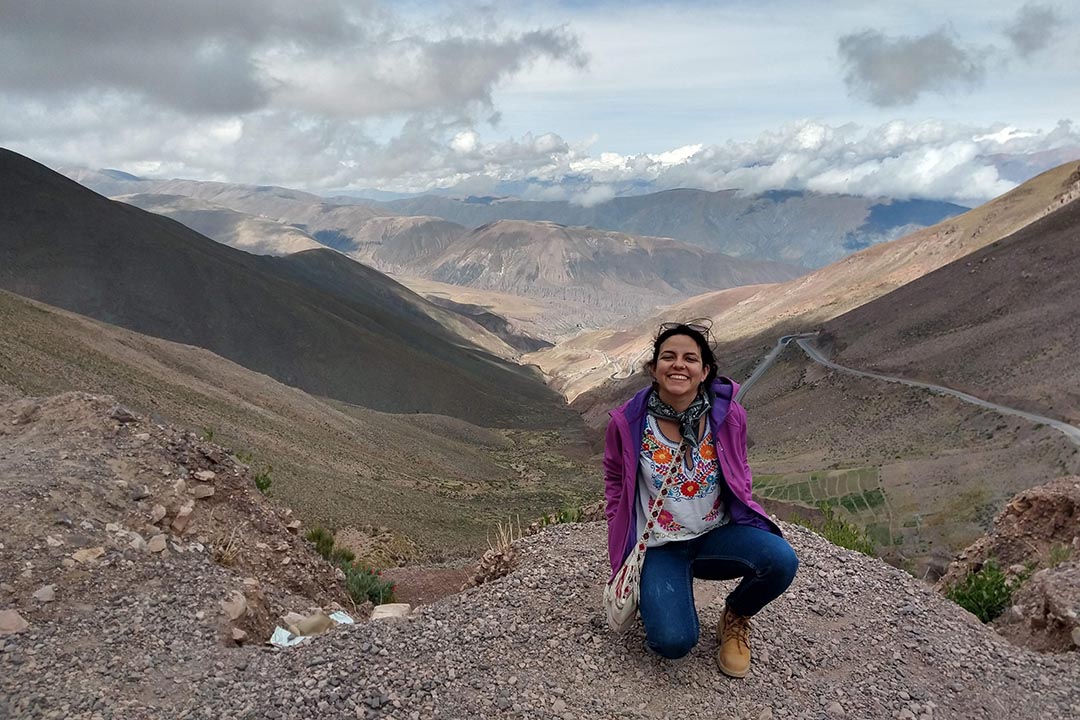
Young Innovators: USask researcher aims to empower Indigenous youth
Project uses social media and website platforms to connect youth with traditional cultures and peers.
By Brooke KleiboerUniversity of Saskatchewan graduate student Mariana Campos Rivera is investigating how Indigenous youth benefit from sharing their territorial and cultural knowledge with one another.
The goal is to identify what Indigenous youth know about their home territories and cultures, and explore how they can learn by sharing and connecting with their peers and communities. Campos-Rivera’s work has been focused on youth in the Oaxaca region of Mexico. Campos-Rivera is from Mexico City.
“Not much research has been conducted to understand the role of Indigenous youth as traditional ecological knowledge holders; academically, it’s a gap that needs addressing,” Rivera said.
Using social media platforms and the internet, Campos-Rivera’s project has been focused on connecting youth, and on supporting the maintenance of their cultures by providing a platform for sharing knowledge.
Youth selected for the study had developed initiatives focused on various aspects of traditional knowledge in their home communities, including food security, language revitalization, textiles, art and territorial rights.
Campos-Rivera said the key to the project was shifting away from the mainstream belief that youth should only focus on learning — and instead embrace what they already know and consider that knowledge to be valuable.
The collection of initiatives submitted by study participants was collated into a website that connects youth knowledge with the larger public, providing contact information for anyone who wants to learn more or connect with the content’s creator.
“Indigenous youth want to connect, they want to share what they are doing, and I think that people, Indigenous and non-Indigenous, also want to learn more about Indigenous cultures more generally,” Campos-Rivera said.
“Knowledge and connection are key to understanding and respecting diversity.”
The research team hopes the website will be an ever-evolving tool that encourages Indigenous youth to reflect, learn and support each other.
“Social media and digital tools can help to bring information about Indigeneity to people that have no other way to access it,” Campos-Rivera said of the project’s mainly digital focus.
“This could potentially open spaces to reflect upon and talk about the way people relate to Indigenous issues and Indigenous peoples, both at the personal and community level.”
An important finding from the study was that Indigenous youth hold strong attachments to land and people in their home communities. This shows it’s important to recognize that both people and place shape the identity of youth.
The research is part of a larger project alongside her research supervisor from the U of S School of Environment and Sustainability (SENS), Dr. James Robson (PhD). Robson’s research and professorial activities focus on the human dimensions of environmental sustainability.
The youth engagement techniques and data collected in Campos-Rivera’s research can be applied in countries such as Canada and Bolivia, where Indigenous youth are an integral part of reconciliation processes.
“By seeing how other Indigenous youth own and value their roots and connection to place, I could see this triggering or cementing similar emotions and actions among the participants at large.”
Campos-Rivera plans to present her research findings at the Congress of the International Union of Anthropological and Ethnological Sciences in November and will defend her thesis in 2022.
“I hope this research can empower local communities and other youth to share what they know, and to do so on their terms,” she said.
The research was supported by the U of S Dean’s Scholarship and the SENS Masters of Environment and Sustainability Excellence Scholarship.
This article first ran as part of the 2021 Young Innovators series, an initiative of the USask Research Profile and Impact office in partnership with the Saskatoon StarPhoenix.
Brooke Kleiboer is a communications student intern in the USask Research Profile and Impact unit.
Article re-posted on .
View original article.

